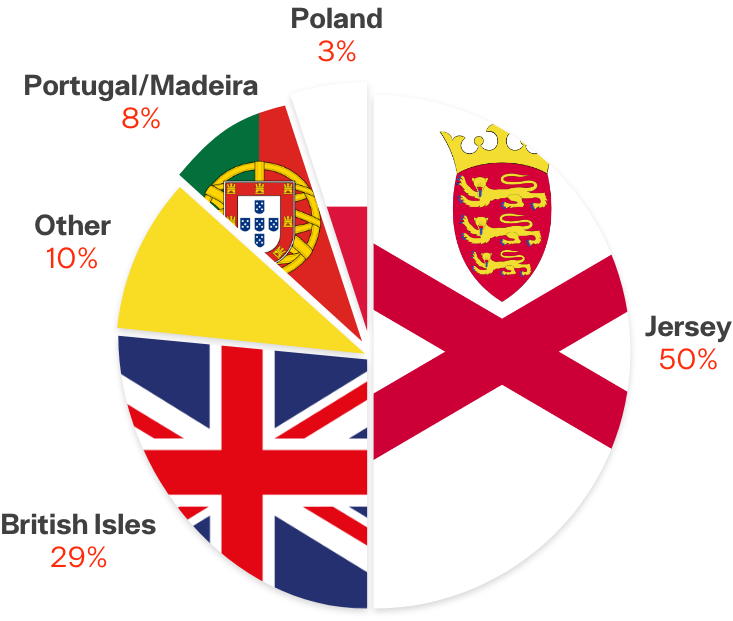There are 62 different languages spoken in schools across the island. The three most spoken languages of multi-lingual pupils in Jersey are Portuguese, Polish and Romanian.
Jersey’s first language policy in schools has helped support language learning in all Jersey schools and has increased awareness of Jersey’s diverse and inclusive society.

